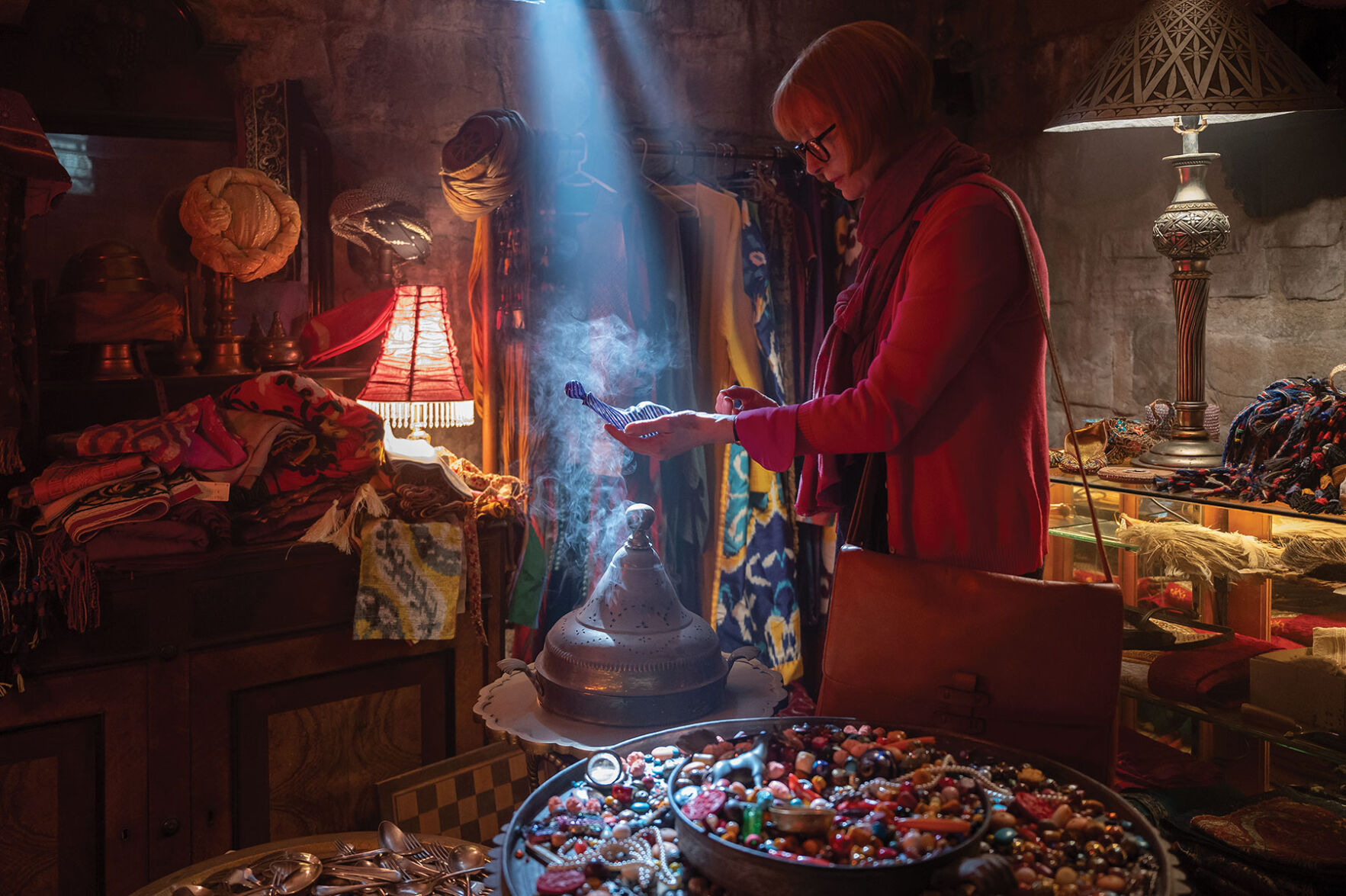I don’t know if it was George Miller’s intention to make the most fantastical “magical negro” movie of all time, but with Three Thousand Years of Longing, that’s exactly what ol’ boy did.
Here Idris Elba (who just went toe-to-toe with a killer lion in the recently released Beast) walks around damn near butt nekkid as the Djinn — basically a tall-ass genie. This pointy-eared wish fulfiller finally breaks out of his bottle after narratologist Alithea Binnie (Tilda Swinton) buys it at an Istanbul shop and cleans it back in her hotel room. Once the Djinn is out, he grants her three wishes, which the lady is hesitant to accept since she knows cautionary tales about wishes don’t end happily.
After turning a lot of action fans on with the Oscar-winning hit Mad Max: Fury Road, veteran Australian filmmaker Miller is back in fantasy mode with Longing, which he co-wrote with his daughter Augusta Gore. And much like the A.S. Byatt short story it’s based on, it’s all over the gotdamn place. It’s sprawling yet contained, as the Djinn regales Binnie, both of them in hotel robes, with all the stories of how he pleased those (mainly women, including the Queen of Sheba) who found him — and how he usually ended up back in a bottle, eventually dropped in the ocean. These sequences are production-designed to the nth degree, with Miller and his longtime collaborators (including editor/wife Margaret Sixel and cinematographer John Seale) making the settings so elaborate and extravagant that some of my film-critic colleagues have wished the film was being shown in IMAX.
I’ve also noticed a racial divide among critics regarding the movie. While paler scribes have praised the film for its full-scale and wondrously shot inventiveness, there are critics of color who aren’t vibing with the fact that it’s still a flick that leans on the outdated magical-negro trope. You could also make the case that it has racist, misogynistic and even fatphobic elements.
I have to admit, Three Thousand Years of Longing is both imaginative and problematic, a cinematic conundrum. As much as Elba plays his mystical figure as a humble romantic servant, homeboy is still playing a servant — a studly, strapping servant at that. This beautiful dark, twisted fantasy is mainly there to convince Swinton’s single, lily-white, repressed yet content story enthusiast that wanting something more isn’t a bad thing, even if it doesn’t lead to a happy ending. (Nobody does uptight women quietly ready to let their freak flag fly quite like Swinton.) Miller seems to run out of steam in the third act, as he brings both these characters back to the real world after an hour and change of surreal, illusory madness.
There is a possibility that most of what happens in Longing might be just Binnie hallucinating from a brain tumor or something. (The film starts off with her seeing a couple characters from Djinn’s stories in crowds.) If that is the case, then this makes Longing the second ambitious piece of cinema to come out this year — next to Apichatpong Weerasethakul’s Memoria — starring Swinton as a lonesome woman who may or may not be mentally falling apart.
With Longing, Miller indulges in grandiloquent storytelling, while also making the case that there appears to be a serious lack of it in our popular culture. He even makes a subtle dig at our comic-book-obsessed film industry in one scene, as Binnie addresses an audience about mythmaking and asks “what is its purpose” while images of beloved superheroes are projected behind her.
Yeah, Three Thousand Years of Longing has a lot of issues. But as far as films about a person of color teaching some white person how to live, it’s easier to take than Green Book.





